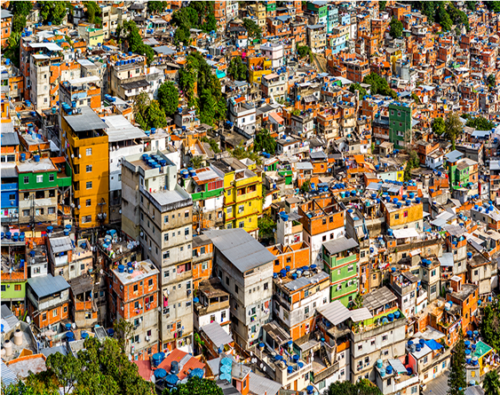Sustainable Service Delivery in an Increasingly Urbanized World

USAID Urban Policy
Executive Summary
USAID’s Sustainable Urban Services Policy (Policy) provides guidelines to help countries and communities improve the delivery of essential services in urban areas. It emanates from the recognition that unprecedented rates of urbanization are reshaping the nature and geography of global poverty, and seeks to harness the rapid growth of cities to achieve our core development objectives.
By 2030, urban areas worldwide will house an additional 1.4 billion people. Nearly all of this growth will take place in the developing world, and every single country in Africa, Asia and Latin America where USAID has a presence will be impacted by urbanization. The National Intelligence Council identified urbanization as a “tectonic shift” that will “affect how the world works” by 2030. The prospects for achieving our core development objectives are, therefore, tied to what happens in these urban areas.
Urbanization in the developing world offers unparalleled promise and opportunity for eradicating extreme poverty, fostering innovation and creativity, and including greater numbers of citizens in increased growth and prosperity than ever before. A unique window of opportunity currently exists to assist governments in building safer and more sustainable cities for the nearly one and a half billion additional people who will reside in cities by 2030.
In addition, the Policy seeks to move away from a development approach oriented around an artificial urban-rural dichotomy. Instead, the Agency believes that development efforts must span a continuum from rural to urban to form an interdependent system. In particular, increasing spatial, economic, and social interconnections between urban and rural areas mean that rural poverty rates tend to fall in countries with higher rates of urbanization. Rural-urban migration, the expansion of periurban areas, and the growth of market towns all offer greater social and economic opportunities for rural residents.
But urbanization also entails a host of major development challenges: one billion people currently live in slums without basic services like clean water; 28 percent of urban under-five children are chronically malnourished; 60 percent of urban dwellers are exposed to natural disasters; some infectious diseases, such as tuberculosis (TB), disproportionately affect dense urban populations; and a lack of formal property rights make many vulnerable to forcible evictions, displacement, and lost livelihoods. Compared with men, women in cities face unequal access to work, housing, health, education and representation in urban governance.
How can we help countries address these challenges, and harness the urban potential to improve stability, economic prospects, and millions of lives? First, this Policy stresses improved urban service delivery as the key to unlocking the potential of an increasingly urbanized world. Five decades of experience at USAID have shown that focusing on urban areas can address the needs of vulnerable populations and ensure sustainability by achieving cost-recovery and building capacity. Second, urban areas are an excellent environment for policy and program integration. Given proximity, access to information, and economies of scale, investments in institutions, governance, citizen engagement, and infrastructure are mutually reinforcing. Integrating USAID’s streams of technical and governance assistance can produce outcomes that support not only effective sectoral interventions, but self-sustaining and resilient cities.
It is the vision of this Policy to support service delivery that attains large-scale benefit to urban residents in a sustainable manner over the long term. This Policy therefore encourages Missions to support programs that will improve governance, encourage accountability, and bolster capacity to manage urban service delivery systems.
To support this vision, the Policy provides practical approaches to help Missions understand, shape, and support urban programs in host countries. At the heart of this Policy are several principles that can assist Mission staff to design programs that improve local accountability over service provision and increase the availability of domestic financing for improved urban services, including:
- Ensuring political and financial sustainability. The Policy outlines key principles to promote financial viability, country ownership, and continuous monitoring of service delivery quality;
- Advancing accountable, pro-poor service delivery models. In light of the growth of urban poverty, the Policy provides new approaches to advance inclusive urbanization and development of pro-poor urban services. Women, children, male and female youth, and the disabled should receive particular attention given that they are disproportionately affected by urban service gaps;
- Fostering market orientation and public-private collaboration. USAID technical assistance would be improved by focusing on improving local investment climates and leveraging market financing to scale up viable urban service approaches and technologies; and
- Supporting municipal resilience. USAID Missions should continue to adjust their programming to increase local self-reliance through supporting improved local revenue collection and the long-term maintenance of infrastructure, including “climate proofing” to prepare for future climatic changes, especially sea level rise.
In Missions and in Washington, D.C., the Policy emphasizes supporting local capacity to meet the enormous demands for basic human services that emanate from an increasingly urban world. By closely collaborating with developing countries and municipal institutions, this approach will position the Agency to better achieve the core development objectives identified in the USAID Policy Framework 2011-15.

